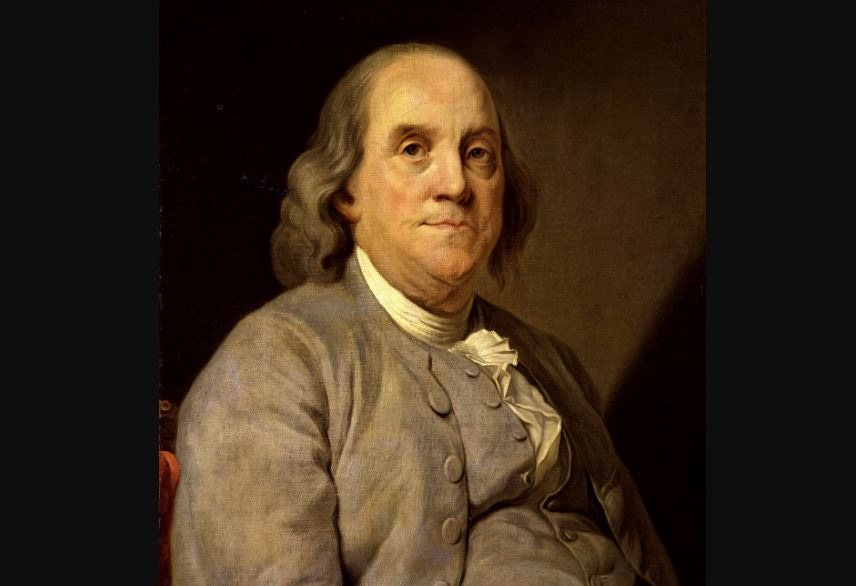Zeus: What would Ben Franklin say?
As the impact on individual liberties grows with Covid-19's rampage, David Callaway looks at the prospects for tackling the biggest crisis of all.

SAN FRANCISCO (Callaway Climate Insights) — All major political roads lead to Benjamin Franklin.
“Those who would give up essential liberty, to purchase a little temporary safety, deserve neither liberty nor safety,” the great inventor and founding father wrote in 1755.
After languishing in obscurity for 250 years, the phrase gained social media fame in the post-9/11 era as a rallying cry against government overreach on surveillance and travel regulations. In the past week, it's appeared numerous times associated with the anti-lockdown crowds in Michigan and elsewhere.
Forget the fact that Franklin was actually talking about taxes for defense spending, and criticizing those who would not pay. The misuse of the phrase demonstrates the power of words to move worlds and inspire causes, and spotlights a key dilemma in the coming battle for a green recovery to coronavirus-ravaged economies.
Why is this column called Zeus? David Callaway explains here.
People don't take to having authority imposed on them. Ever, but especially in America and increasingly now. Lockdowns may save lives, but we all have our individual thresholds of at what cost. The longer the lockdowns draw out, the more intense protests against them may become.
Sure, I laughed when I looked at Andy Borowitz's daily satire headline, “Cuomo says Florida beachgoers traveling to New York must first be tested for IQ.” But I can understand why a worker without a paycheck or enough food for his family is ready to take the risk to return to work. Balancing these two essentials is a political minefield, and will dominate news coverage in weeks ahead.
In the climate-change debate, this is the eternal sticking point. Government-imposed rules and regulations vs. freedom from Big Brother. This is why it’s been so hard to hammer out an effective global response. If every country can’t agree on Covid-19 prevention, how can they possible agree on climate resolutions? The solutions must come from the ground up, as Earth Day sprang 50 years ago this week.
From inventors and entrepreneurs — such as Ben Franklin or Thomas Edison or Henry Ford or Steve Jobs — changing the world by creating new markets for both consumers and investors.
In the past week, I've read or spoken to folks about smart farming profitable crops while decarboninzing the air and powering the fields through solar. About a Canadian company that takes the carbon out of cement in the making of concrete, one of the most harmful products we make. About a company dedicated to making blue jeans with less carbon than the amount of an automobile. None of these will likely become the next Apple (AAPL), but they could all change their markets, enrich their employees, and help protect the environment. If they get the necessary financing from investors and non-profits, and governments.
Ideas influence policy. Investment fuels ideas.
Despite the birthing pains of the ESG (environmental, social, governance) investing movement, the money that’s come into it, estimated at some $30 trillion, shows not only a desire to do good, but a desire to make money doing it. There is too much ESG money chasing too few stocks and bonds, however, and so the onus now is on the supply side.
The time is right for renewable energy strategies to become more profitable than oil and coal, and to begin attracting jobs away from fossil fuel sectors. For oceantech strategies to draw the best and the brightest from universities now creating engineers for Facebook. For water cleansing and distribution plans that will create jobs and prevent war. Just a glance at the priorities and voting patterns of the under-30 set makes clear this is where their interests lie.
Our economies are about to be overhauled in ways none of us have ever seen. As we debate individual freedoms and the cost of bailouts, lets save some effort for the one project — the one challenge — which does impact every one of us. Which will last the rest of our lifetimes. Which could literally create lightning in an economic bottle for millions instead of forced migration, mitigation and misery.
Which reminds me of another Ben Franklin quote: “Look before, or you'll find yourself behind.”

